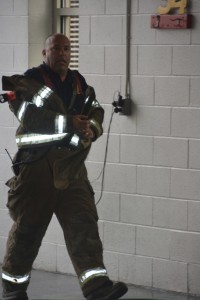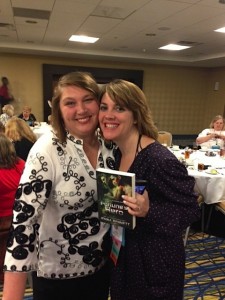The Waterworld Mermaids are very excited to have fellow WRW member and super awesome chick, Kimberly Kincaid, guest blogging today. Besides owning some of the coolest clothes around and leading us in an amazing yoga session during WRW Retreat, Kimberly writes contemporary romance novels that split the difference between sexy and sweet. She is a 2012 Marlene winner, and a 2011 Golden Heart and Golden Pen finalist. Kimberly is proud to be represented by Maureen Walters at the Curtis Brown Literary Agency.
Take it away, Kimberly…

Today's Guest Blogger, Kimberly Kincaid
Research: Not Just Another Dirty Word
Okay, okay. I’ll admit it. I was a bit of an aberration in high school. Was it my gravity-defying hair or my odd penchant for John Hughes movies? No, love affairs with Aqua Net and Jake Ryan were strangely the norm back in my teen-angst days. But I was definitely the exception to the rule when being given huge school projects, because while my peers were moaning and groaning about all the hard work, I was doing an inner touchdown dance of joy.
My confession is this: I love research.
Now, I’m the first person to admit that research can be pretty grueling stuff. Yes, it’s cool to gather and discover new information, but being up to your elbows in reference manuals or looking at a daunting 246,000 hits on a Google search can be pretty overwhelming stuff. So what’s the best way to make this part of the writing process not just easier, but fun?
Funny you should ask.
Plan, and then plan again. When we’re just starting out with our manuscripts, laying the research foundation is crucial. After all, what we turn up will likely impact our plot and characters, so having a good game plan is key. Outline your characters’ occupations and situations. Will your hero be a business owner? Your heroine a paramedic? Has one of your characters lost a spouse? Narrow these things down as you plan, and let them guide you into solidifying that first layer of your manuscript.
Play online. Repeat after me: Google is your friend. Let’s go with that hero who’s a business owner. Plugging “business owner” into an Internet search engine is likely to give you enough hits to break the six digit mark by a landslide. But if you play around with your keywords (“small business owner, Philadelphia” or “family owned furniture shops”, for example) will knock your numbers into the manageable level. Yes, you’ll still have to weed through the results, but the payoff will help cement that foundation into place.
Ask around. Research can—and does—happen in the most unlikely places sometimes. Your baby-sitter, your spouse’s co-worker, the guy detailing your car, all of these people are potential treasure troves of research. Don’t be afraid to casually mention that you’re writing a book about a small business owner. Chances are, you’ll be pleasantly surprised at who comes out of the woodwork with a friend/cousin/neighbor/great aunt Bessie who runs her own business. Case in point: I was ankle-deep in my first foodie manuscript when a friend of mine mentioned she knew a local restaurant owner. Which brings me to my next point…
Go where the pros are. If you want to write a realistic small business owner, things will be leaps and bounds easier if you can meet up with one to bounce questions off him or her. I like to go with a few open-ended questions like, “What does your average day look like?” and “Tell me about the biggest challenges you face in your profession”. Seeing your pro at work can also be incredibly beneficial. Remember that paramedic heroine? If you want her to be realistic, ask your local volunteer rescue squad if you can do a couple of ride-alongs. Seeing them in action will give you a sense of some of the things your character should be doing. After I sat in the kitchen of that local restaurant owner I met through my friend, I was able to create a colorful and realistic backdrop for my story, as well as enrich my chef characters with attributes that never would’ve occurred to me if I hadn’t seen the real pros in action.
First-person is sometimes best. For those of you writing about serial killers, skip over this one! For everyone else, consider putting yourself in your characters’ shoes. Does your hero have a rock-climbing hobby? Find a company that offers lessons for beginners. Is your heroine an artist? Pick up some brushes and paints at your local art supply store and play at home. You don’t have to be good at it, but if you’re able to accurately describe the burn of your muscles as you try to pull yourself higher or the smell of the oil paints when they’re fresh out of the tube, you’ll create scenes that will put your readers in your book right next to your hero and heroine as they do those things too.
So you tell me readers! What are some of the most fun things you’ve done for research? What are the things you dread? Do you go for the paper research, or are you an experience junkie? Tell us your most tried-and-true methods!

In the middle of "research"
Thank you for swimming in the lagoon with us today, Kimberly!
When she’s not sitting cross-legged in an ancient desk chair known as “The Pleather Bomber”, Kimberly can be found practicing obscene amounts of yoga, whipping up anything from enchiladas to eclairs in her kitchen, or curled up with her nose in a book. She resides in northern Virginia with her wildly patient husband and their three daughters.
 Like many a work of prose, this blog post was born from the merging of two entirely separate ideas.
Like many a work of prose, this blog post was born from the merging of two entirely separate ideas.



